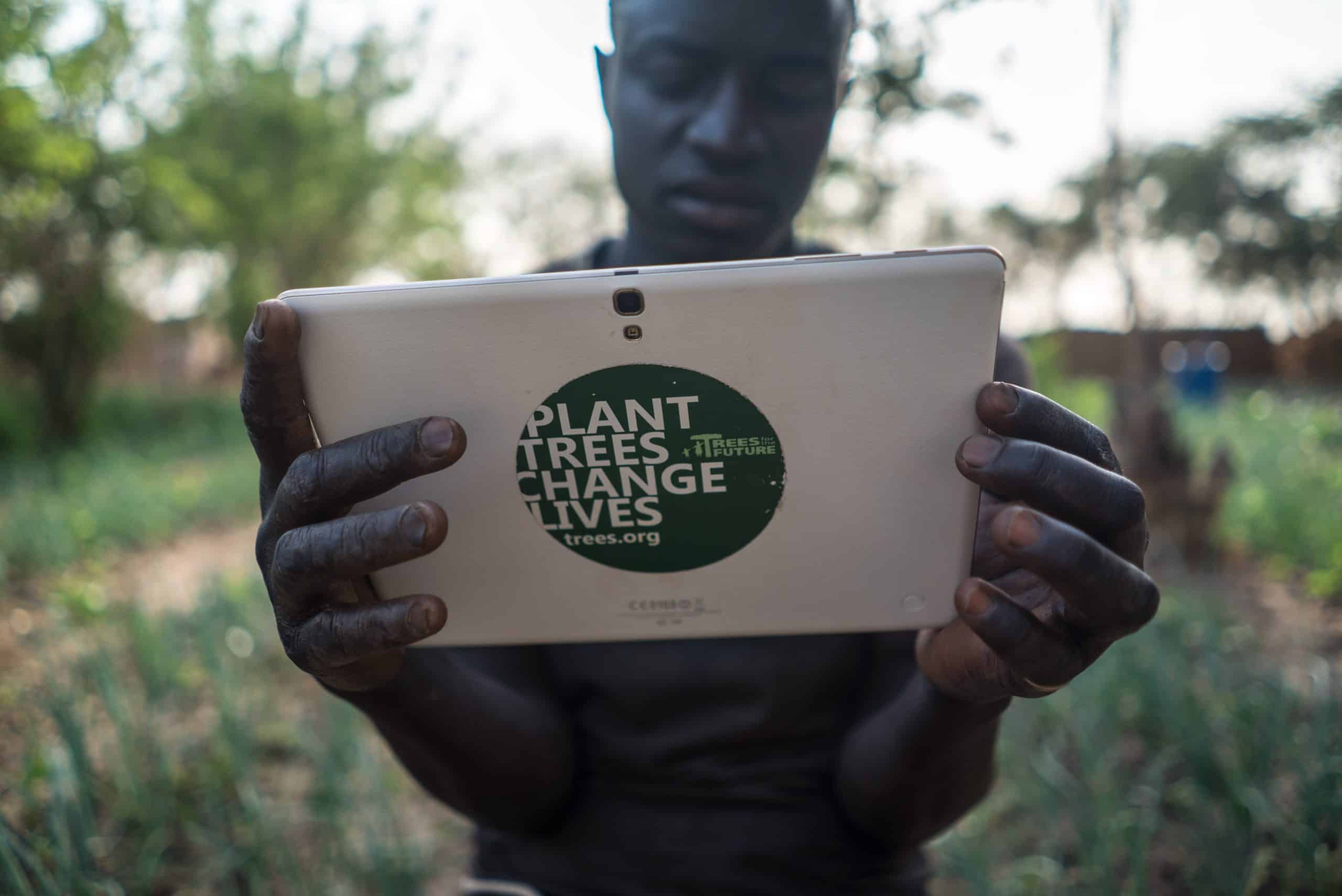Trees for the Future continues to aid beneficiaries despite distancing challenges
Silver Spring, MD (May 7, 2020) – In an ongoing effort to prioritize staff and beneficiary health, nonprofit Trees for the Future is implementing remote communication systems to provide safe, effective training and alerts to program participants.
Trees for the Future (TREES) provides regenerative agroforestry training and education to smallholder farmers in the developing world. TREES is currently requiring all staff to work from home, but communication and training has not ceased, despite the challenges.
“Our model and approach requires a lot of hands on training, we meet with farmers to teach them how to rethink the way they farm so that they can ultimately lift themselves out of hunger and poverty,” says Executive Director John Leary. “Social distancing and self isolation are necessary, but we had to quickly think through how we could follow these safety guidelines and still get farmers the information and training they need to not only be successful, but become more resilient in the face of global crises like this.”
Typically, staff and farmers meet in person, but during COVID-19 they’re relying on cellphone calls and text messages. TREES developed a new ‘Remote Communications Recording’ tool within their existing monitoring and evaluation reporting system to document all calls, concerns, and communications with farmers. This helps the organization to track and aggregate information, provide advice on key concerns expressed across project areas, and develop target responses to needs in real time. Farmers can easily report issues to staff such as insect infestation or the need to get vegetables to market during the lockdown. Staff can provide COVID-19 updates and safety precautions as well as provide natural insecticide recipes and alert farmers of severe weather. Flooding is a particular concern in Kenya now, both for farmer safety as well as crop success.
Virtual training is another key component of TREES’ remote communication efforts. In April, training staff began recording simple, short videos in local languages to demonstrate practices that would typically be taught in person. In Senegal, for instance, staff filmed videos demonstrating seed preparation, soil preparation, and nursery care – all vital skills for farmers this time of year.
“We may be staying home, but we’re not abandoning the farmers we serve. As we embrace remote communication there is a more consistent flow of information and in some ways it feels like we’re more connected to farmers now than we’ve ever been before, ” Leary says. “It’s nursery season in Senegal and we had to get farmers the training and guidance they needed to stay on track in the program.”
The staff are distributing the videos to Lead Farmers via WhatsApp who can then send the videos to farmers who have smartphones. For those who cannot receive video, the Lead Farmers are talking them through each step over the phone.
“TREES staff and farmers are a community of problem solvers and are meeting the challenges of COVID-19 with perseverance and innovative solutions,” says Executive Director John Leary. “Although these are trying times, these necessary changes to our programs have proven our adaptability. As we think about the future of our work, we can expect to see some of these changes carry over into our projects long term, helping us to ultimately reach more people.”
Beyond improving remote communications, TREES is also emphasizing the importance of protection and coordinated assistance.
Protection
All staff have been provided with detailed instructions on best practices during COVID-19, including handwashing, limiting trips outside their homes, and social distancing.
Coordinated Assistance
One of the most pressing challenges program farmers face is accessing markets during COVID because of closures, restrictions, and evolving circumstances. TREES field staff are working to help farmers identify buyers while headquarters accelerates plans to provide farmers with educational materials on economics and marketing.
TREES has currently extended COVID-19 protocol through the end of May, with an understanding that the restrictions will be extended if necessary. Find the latest staff update here.
###
Trees for the Future is a 501 (c)(3) nonprofit headquartered in the United States and operating programs in Cameroon, Kenya, Senegal, Tanzania, and Uganda. Trees for the Future is ending hunger, poverty, and deforestation through regenerative agroforestry training.
